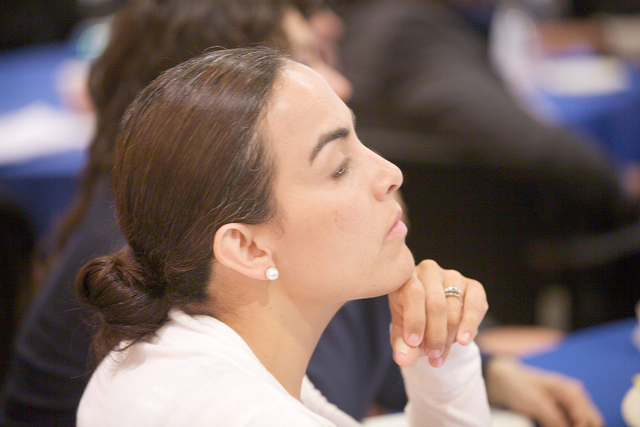Conferences offer the opportunities to learn new things, meet new people and catch up with old friends and colleagues. Healthcare has quite a few conferences and they tend to be segmented into specialties, such as internal medicine, cardiology radiology, pediatrician, pharmacy, life sciences, investing or digital health.
Lately I’ve noticed there is a lot of overlap among topics, speakers and startups. In some ways this works because audiences may differ based on location or topics presented but in other ways, I think it would be nice to shakes things up a bit.
I would like to see more interesting pairings. What if we asked a caregiver to interview a CEO or vice versa? What if we asked a sociologist to interview a futurist?
I also would like to see more hospitals, universities, medical schools and nursing schools open their doors to conferences, meetups, and outside entities. It’s important that stakeholders and healthcare workers are involved in creating and commenting on the policies and innovations that will change the way in which they do their jobs.
I’d also like to see more conferences or mini-conferences on weekends or evenings, making things feasible for providers and patients who want to attend. Live streaming and active social media channel are also also helpful so people can watch, share, and comment on their own time.
There is a lack of gender parity at many of these healthcare conferences. I’ve met plenty of phenomenal, intelligent, and dynamic women who can speak authoritatively about the salient topics of our day and would love to see more of them featured as panelists, especially in light of the fact that women make a majority of healthcare-related decisions in American households.
We have a HIMSS (which has done so much in the field of healthcare meets technology) but why not a HERSS? This would be a conference for people from all elements of healthcare, including traditional and nontraditional forms of healthcare and the social side. There is no dress code (except being clothed) and people can feel free to come as they are. It’s not what you wear, it’s what you bring to the table: an open mind, domain expertise (or not) and a willingness to learn.
So what would HERSSS stand for?
HEALTHCARE
All aspects of traditional healthcare represented as well as newer entities. A mix of hospital systems, long-term care facilities, allied health, nutritionists, physical therapists, pharmacists, ACO’s, urgent care clinics, community organizations, government, global health organizations, mind body medicine, integrative medicine specialists
EDUCATION, ENGINEERING, ECONOMICS, ENTREPRENEURSHIP, EMPOWERMENT (Patient)
Engineers, professors, entrepreneurs, designers, patient advocates, disease specific groups, global health, caregivers, students of all kinds.
I would like to see more educators, students and patients (regular people) at events. It’s important that the people who represent the future of the industry voice their thoughts and also learn from others.
RESEARCH
Epidemiologists, data scientists, students, interested parties who conduct research out of passion and purpose.
Data and evidence-based medicine will represent the core of how we practice medicine and it’s important to see what’s out there, what’s been done, and what the data says so we can shape practice based on solid information.
SCIENCE
Life scientists, biologists, geneticists, cognitive neuroscientists, physicists, food researchers, materials scientists, etc.
What comes out of bench science often turns into new techniques, technologies and medications. Our genetic makeup matters.
SOCIAL
Social workers, social media, sociology, social determinants, social innovation and social policy.
We as human beings are social creatures and we live in a network of people. No discussion on health is complete without the social aspects that are at the core of how we live and work.
SINGULARITY
Futurists, now-ists, artists, roboticists, nanomedicine, sensor and diagnostic tech.
What does the future look like in the eyes of people who dare to dream and create from those dreams?
Healthcare is made up of many entities and some people see that as a weakness or barrier, but that heterogeneity can also be seen as a strength. We can draw on unique points of view and come up with creative solutions that don’t leave people behind. Instead of asking why, we should ask why not? That’s what we really need in a time when the system is in flux and what we create today determines what happens tomorrow.
Photo credit: CC by US Department of Education




